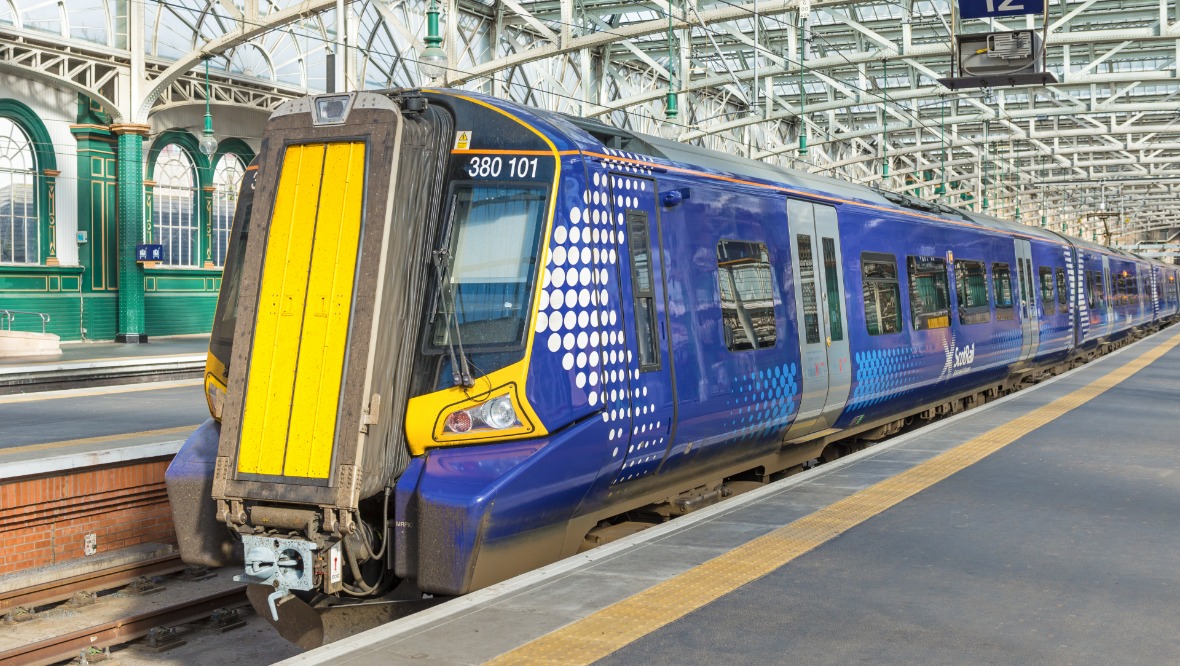Rail workers have voted to reject the latest pay offer tabled by Scotland’s national operator.
Rail, Maritime and Transport (RMT) union leaders are expected to meet ScotRail next Tuesday for further talks over a 5% pay offer after rejecting the terms because of a clause over the use of new technology.
It could mean further strikes bringing the newly-nationalised network to a halt again in a summer pockmarked by industrial action.
Members voted against the offer by a margin of around 60 to 40 with a 65% turnout.
ScotRail bosses branded the result of the ballot “extremely disappointing”.
The union’s national executive previously agreed with Scottish officials that members should reject the tabled increase amid soaring rates of inflation and the cost of living crisis.
A letter from regional organiser Mick Hogg to the union’s general secretary, Mick Lynch, read: “We note the result of the referendum and note that our members have rejected the company’s pay offer.
“We instruct the general secretary to inform the company that our members have rejected ScotRail’s pay offer and to arrange a meeting of the company with our lead officer immediately for an improved offer.
“If no improvement is achieved, our members will be balloted for industrial action.”
The latest offer to RMT members included a 2.2% increase to recognise the cost-of-living challenges, funded by Transport Scotland and backdated to April 2022, and a further 2.8% increase, funded by ScotRail.
It also featured a five-year no-compulsory redundancy agreement, a commitment to bring Sundays into the working week by December 2027 and a Sunday working allowance increase of 10% alongside a rise in minimum flat rate pay to £10.50 per hour.
Phil Campbell, head of the franchise’s customer operations, said: “The offer made to general grade staff is a strong one and recognises the cost-of-living challenges faced by families across the country, as well as delivering good value for the public.
“The deal on offer recognises the hard work of staff while conscious of the financial challenges faced by the railway as we look to recover from the pandemic.
“We all want to have a reliable, efficient, and sustainable railway that supports the economy and connects communities across the country. This offer would be a significant step towards delivering that.”
Passengers have already faced weeks of disruption due to strike action by RMT members during a dispute with Network Rail which effectively closed lines for three days in June.
A 24-hour strike took place on July 27, with 40,000 workers also set to walk out on August 18 and August 20.
That decision came after the drivers’ union ASLEF agreed a pay deal with ScotRail following weeks of a “severely reduced” timetable during an impasse in negotiations.
A Transport Scotland spokesperson added: “This is a disappointing result, particularly in light of the fair and affordable offer made.
“Any continued industrial action will undoubtedly have negative impacts on passengers which, in turn, has further implications for rail finances. The required timetable changes and cancellations also discourage a return to rail at a time when we are trying to build back patronage.
“Despite this disappointing outcome, we are still very much committed to working with the RMT union to reach a mutually favourable outcome to this dispute.
“We would urge all parties to get back round the table as soon as possible so that this can be resolved soonest for the benefit of staff, passengers and the economy.”
Follow STV News on WhatsApp
Scan the QR code on your mobile device for all the latest news from around the country


 iStock
iStock
























